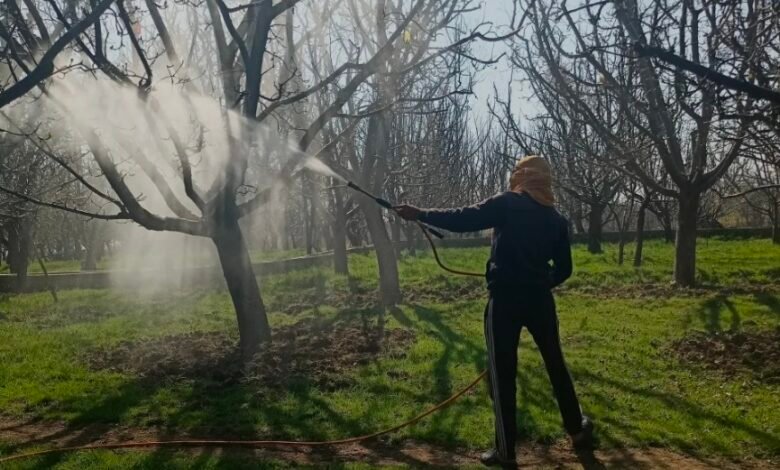From Orchard to Oncology: How Pesticides Are Fueling Kashmir’s Cancer Epidemic

Srinagar, Apr 14: In Kashmir, the steep rise in cancers of various types is being linked to several factors, lifestyle and pesticides in the food chain being the major ones. A 2010 study proved the link between pesticide exposure and brain tumours beyond doubt, however, guidelines, safety and efficacy checks as well as awareness about the link between pesticides and cancers is missing from the public health sphere in Kashmir.
Brain tumours are most prevalent in Anantnag, Budgam and Baramulla districts. However, Kulgam and Shopian also have a significant share of brain tumours, which are more concentrated given their smaller sizes of area and population.
The study “Brain cancer and pesticide relationship in orchard farmers of Kashmir,” published in the Indian Journal of Occupational and Environmental Medicine found that 90% of brain tumour patients were exposed to pesticides, with all cases involving high-grade, aggressive tumoursvery. Orchards, as per the study, cover a 193109-hectare area in districts of Kashmir. Of this land, 90 percent is located in Budgam, Anantnag, Baramulla, Kupwara, Shopian, Kulgam and Pulwama.
Advertisement
Mancozeb, Captan and Chlorpyriphos are classified as carcinogens by the European Union and are widely sprayed in orchards of Kashmir. The estimated spray of Chlorpyrifos in Kashmir is 3186 Metric Tonnes (MT), for Mancozeb 3400 MT and 4350 MT for Captan.
Advertisement
In the scenario where cancers are spiking and given the established link to pesticides for brain cancer, the study findings published nearly 15 years ago, the Kashmir healthcare system must have sprung into action to safeguard the population. Stricter regulations to check the quality of pesticides, promotion of pest-resilient fruit varieties and exploring options of organic farming could help mitigate the crisis. In addition, there is a dire need to further research the presence of pesticides in food and water chains.
Advertisement
Mancozeb is a popular fungicide used for the prevention of apple scab and other apple diseases. It was banned in the European Union due to its health and environmental risks. Captan, another fungicide for broad disease control. In Kashmir, orchard farming forms the backbone of the economy and is the main source of income for lakhs of people. However, the lax safety protocols, cancer cancer-causing effect are multiplied where the hazardous impact of these chemicals is not just of the orchardists or people living near orchards, but far and wide areas where it leeches through water bodies.





